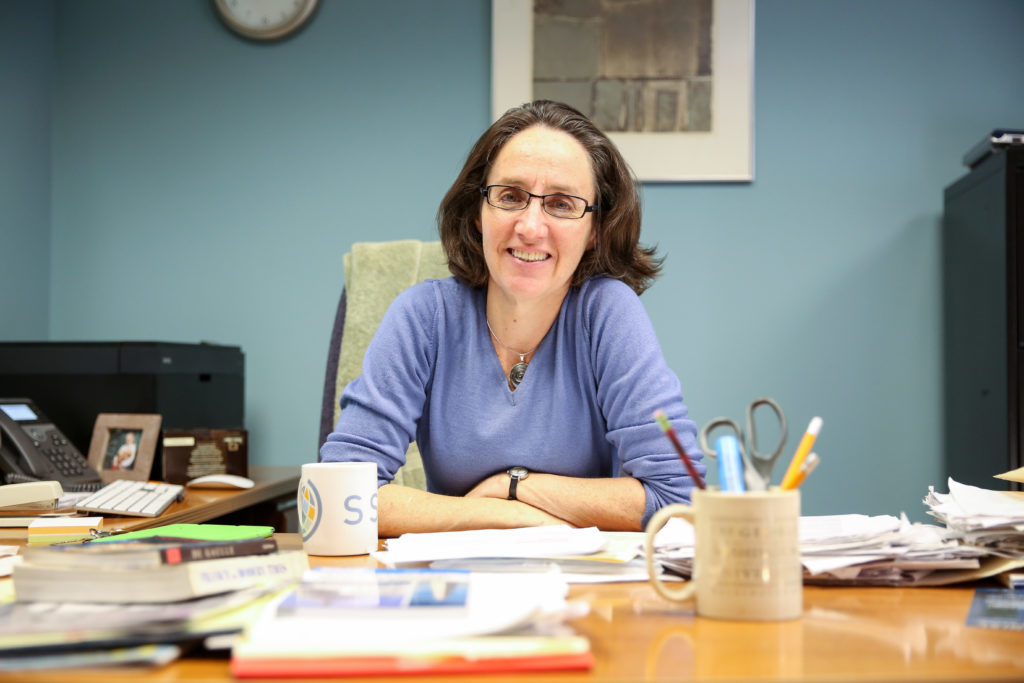Faculty in the history department will soon pick up a second gig as editors for a website that puts the news in a historical context.
History department faculty will take over editing for the History News Network website in 2019, when the site’s founder and current editor retires, the department’s chair said. The website’s editor said he was drawn to enlist GW’s history department because of the University’s reputation as one of the most politically active campuses in the nation, and faculty said working for the website gives them the chance to become directly involved in conversations surrounding current events.
Katrin Schultheiss, the chair of the history department who is also a HNN board member, said the department is interested in a partnership with the network because of each group’s shared interest in providing historical context to news coverage.
“We think there’s a mutual interest on the part of GWU history’s department and some students in the project of HNN, which is to get historical context for a lot of what’s happening in the world and in the country,” she said. “We wanted to become more involved in a more direct way.”
She said several faculty members in the department will have the option to serve on HNN’s editorial board and that when Rick Shenkman, the current editor, retires, history faculty members will completely take over editing by dividing editing and publication roles among faculty.
“The long-term goal of entering what we’re calling a partnership now is to have it be a GW project in a couple of years,” she said. “In other words, HNN would be an entirely GW history department operation.”
Schultheiss added that she is talking with the current editor about opportunities for students to intern with HNN. Interns currently manage the website’s social media accounts and should eventually be able to contribute content, she said.
Schultheiss said in an email that faculty members already teach courses that provide some historical context for current events. For example, courses about the history of power in post-World War II U.S. politics have direct connections to current politics because decisions made then set up political expectations for today, she said.
Shenkman, the founder and current editor of HNN and a Society of American Historians fellow, said he started the website 16 years ago to help Americans understand news from an historian’s perspective. A journalist himself, Shenkman said journalists are often frustrated by the lack of historical context in the news and that he wanted to provide a regular, national outlet to fill in that history.
“I felt strongly that it was a little crazy that there wasn’t a national platform for historians to weigh in on events that they have spent their whole lives studying,” Shenkman said. “So we had this vast pool of knowledge and it wasn’t being put into good use.”
Shenkman said that the website has about 700,000 page views per month, and that when he first started the website it was a full-time job taking about 55 hours a week for one person to manage. He said the workload was significantly reduced after he added more employees.
Excluding the editor and production editor positions, there are currently two paid employees who work on the website and six unpaid interns who manage social media.
Professors will be paid for the work they do on the website and all compensation and funding will come from donations and foundations, Shenkman said. HNN is a self-funding organization that relies on donations from major foundations, like the History Channel, Direct Textbook and The Asian-Pacific Journal, he said.
Shenkman said HNN originally partnered with George Mason University but that the partnership ended 15 years ago because of budget cuts to the university’s history department.
Shenkman said he tried to create a partnership with GW a few years ago but couldn’t get the project together because of a lack of funding. Bill Moyers, an Emmy Award-winning journalist, provided a three-year grant totalling $150,000, which gave Shenkman the opportunity to return to GW with a small endowment for HNN.
“Between now and the time I turn over the website, I am working really hard to expand the network of donors that we rely on,” he said. “If we could get five people or five foundations to donate $5,000 each, then the financial future of HNN is secure.”
GW’s location in the nation’s capital makes it an obvious place to combine history with the present, he said.
“When I talked to Bill Moyers, who is one of our chief funders, and he said what school would you most like to see HNN at, I said immediately without hesitation George Washington,” Shenkman said. “This is a dream come true to have this work out at GW.”





